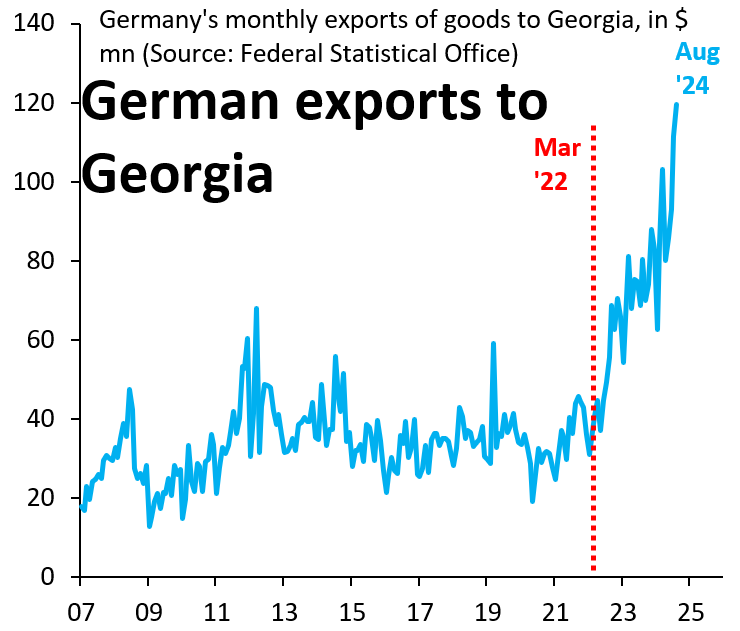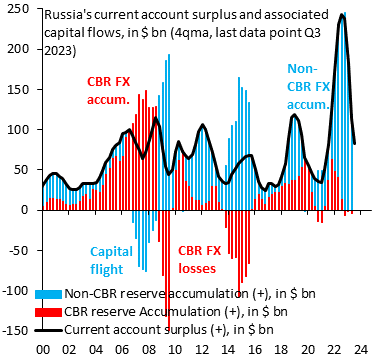Russia's shadow fleet
1. Right after Russia invaded Ukraine, Greek shipping oligarchs used their oil tankers (blue) to help Putin. As the war progressed, they changed strategy, selling their ships to Russia. Putin can't build his shadow fleet without help from these oligarchs...
1. Right after Russia invaded Ukraine, Greek shipping oligarchs used their oil tankers (blue) to help Putin. As the war progressed, they changed strategy, selling their ships to Russia. Putin can't build his shadow fleet without help from these oligarchs...

2. These sales of Greek-owned ships to the shadow fleet are likely one reason the share of Greek oil tankers has fallen steadily from its peak in April 2022. There's more money in selling ships to Putin than shipping his oil, especially with all the paperwork around the G7 cap... 

3. We use a web crawler to find true owners of oil tankers. Increasingly, our web crawler hits a dead end. Example: IMO 9285859. Used to be called "Wonder Bellatrix" with a Cypriot beneficial owner. Since June 2023 sailing under name "Eastern Pearl" with unclear beneficial owner. 

4. Another example: IMO 9299721. Used to be called "Oberon." Beneficial owner was LL Energy SA out of Piraeus, Greece. Since September 2022 sailing under the name "Cepheus" with unclear beneficial owner. 

5. Another example: IMO 9290309. Used to be called "Seagrace" and the beneficial owner was Thenamaris Ships Management out of Vouliagmeni, Greece. Since September 2022 this oil tanker goes by the name of "Thea" with a beneficial owner that is unknown. 

6. When our web crawler hits a dead end, that isn't definitive evidence that a ship is in the shadow fleet. But it's highly suggestive, as it means effort is being made to conceal the true owner. The examples listed here are just the tip of the iceberg. There's many, many more...
7. The EU and G7 should immediately ban the sale of western-owned oil tankers, unless the new beneficial owner is disclosed and is a western owner. Failure to do so quickly allows Putin to build his shadow fleet unchecked and undermines the G7 oil price cap going forward...
8. The Wests big advantage over Putin is that it controls the bulk of oil tanker capacity taking Russian oil to the global market. Greek shipping oligarchs selling their ships to undisclosed owners threatens this advantage and enforcement of the G7 oil price cap going forward...
9. This follows opposition by Greek oligarchs to the G7 oil price cap for all of 2022, on the grounds that the cap would cause retaliatory production cuts by Russia (never happened) and lobbying for a high cap of $60, which the EU followed. The EU needs to stop this kowtowing...
• • •
Missing some Tweet in this thread? You can try to
force a refresh















